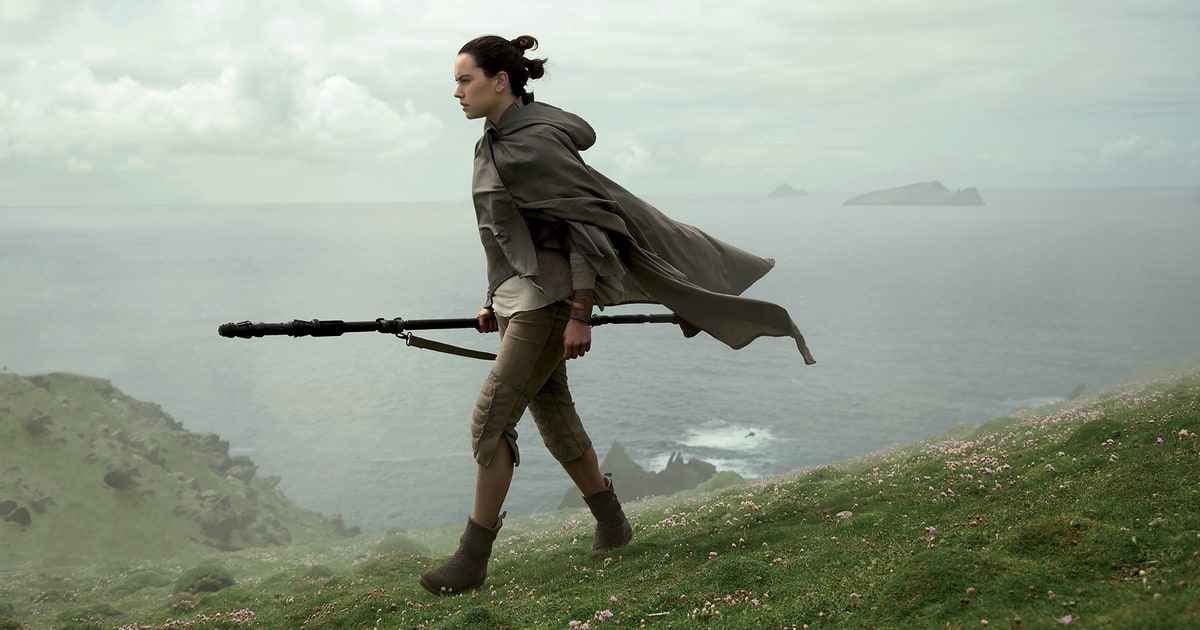Star Wars: The Last Jedi
The Last Jedi is Star Wars Done Right
Without pandering or sacrificing what makes Star Wars so unique, The Last Jedi opens itself up to non-fans in a way that the series hasn’t managed in almost 20 years. The result is an assured and surprisingly fun movie that almost entirely avoids the “middle picture” lags inherent to trilogies.
Rating: 8.5/11
The opening 20 minutes of The Last Jedi are as thrilling and preposterous as you’d expect from a space opera saga that’s headed into its fifth decade. It features a plan too dumb to work and too exciting not to. Droids squeal, haughty bad guys seethe and the dashing hero makes the Star Wars equivalent of a “Yo momma” joke. It’s glorious, an explosion of inelegant, frantic glee that reverberates – and occasionally re-emerges – throughout the rest of the film. Which, if we’re keeping score, may well be the best Star Wars movie ever made.
Well, I mean, it depends on who you ask. Strange as it may seem when discussing such a revered series, it’s all still just a matter of opinion. I, personally, don’t love the original trilogy and – while I’m not crazy about the prequels, either – I grew up with The Phantom Menace and it’s still my favourite of the films. Am I wrong? No, I’m just not statistically accurate is all. In any case, I adore The Phantom Menace for a lot of the same reasons I found The Last Jedi so captivating.
In short, both TPM and TLJ allow entry into the vagaries of the force and wider mythos of this series for people like me. People who, for the most part, don’t really care about Star Wars. Because, while it was well-made and pleasant to watch, The Force Awakens had a fanbase to consider. It needed to spend a good deal of time establishing just what had gone down between Return of the Jedi and right now, on both a plot and metaphysical level. There were a lot of discussions of both that, I’m sure, meant a lot to many people but, for me, it didn’t really register any more than a callback or inside joke would.
Maybe its selfish to want something that works as well for fans as for non-fans, but I tend to disagree. It’s like saying only people who’ve read the book will really understand the movie, because then what the fuck’s the point of making it? So, on the level of accessibility at least, The Last Jedi is a rousing success. It doesn’t set aside talk of what is right and wrong or old and new in regards to the wider lore of Star Wars. But there’s a move towards not letting these things define or get in the way of TLJ just being a spectacular film. Ghost Yoda literally burns the old Jedi tomes for this very reason: to forge a new way ahead.

Of every aspect of TLJ, that’s perhaps the thing I respected and enjoyed the most about it. It’s a movie that’s fully willing to discard its own history, both old and new. On a conceptual level, that means the hero isn’t always some hot headed dude. Poe fucks up several times, and – while some people could’ve been a little more forthcoming – he’s forced to grapple with and change his worst tendencies. Finn has to be saved from his own stubbornness more than once, and Luke is so mired in his regrets that it takes a literal call from the past to reinvigorate him. In every case above, it’s a woman who ultimately gets the job done… well, and a droid.
But more than that, it’s what The Last Jedi has to say about its characters that so wonderfully defies the patterns of what’s come before. Early on in the film, Kylo Ren must accept that he will never truly be like Darth Vader, and he makes several interesting, satisfying decisions to accommodate for that. Rey’s heritage – which has been the defining arc of her life – comes crashing down around her with a feeble clang. Snokes is simply a creature like any other, and Leia can fucking fly! It’s a courageous, almost anarchic approach to material that can often feel a little boxed in, and was definitely worth the fuss the original movies’ staunchest defenders seem to have kicked up.
Within individual moments and by harnessing overarching motifs, director and writer Rian Johnson finds perfect occasions to prod at these revelations. There’s his technique of foregrounding a one-on-one battle while utter chaos descends in the background, or his use of pristine silence in a singularly unexpected moment. But easily the most shocking part of the movie (and probably the entire series) is Rey’s caveside exploration of Ahch-To, which doubles as a refracted look at her own psyche. With delayed multiple imaging and seriously creepy audio design, Johnson finds room in a Star Wars film to go impressionistic and suggest the kind of mental anguish that’s usually reserved for overwrought dialogue.

Speaking of Rey, Daisy Ridley’s performance in TLJ is leagues ahead of her semi-stilted work in The Force Awakens. Her ferocity is intact, but there’s much more gravity to her acting here, which lends itself nicely to her scenes with the smouldering Adam Driver. Old hats at this by now, Mark Hamill and the dearly missed Carrie Fisher turn it out nicely as (once again) Oscar Isaac’s Poe Dameron steals the show out from under everybody. Throw in Finn, Rose, Chewie and a handful of porgs, and the movie manages to stir that old magic of space age camaraderie that Star Wars is so renowned for.
You’ll have noticed I don’t have a lot to shit on here. Sure, there were things I didn’t love: after the opening battle, the first half drags in places, and Finn and Rose’s escapades in Canto Bight could’ve been trimmed a little. But largely, I was soundly impressed with The Last Jedi, both while it was playing and in retrospect. Its structure and sheer craft lends itself to rewatchability, and I honestly can’t remember the last time I realised I wanted to watch a Star Wars film more than once. Well, apart from The Phantom Menace.
One Reply to “Star Wars: The Last Jedi”